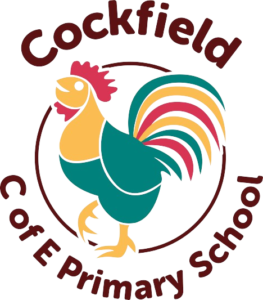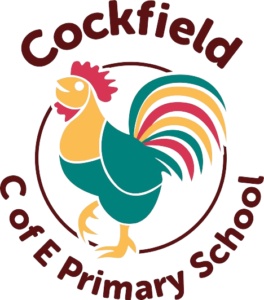Curriculum
We deliver a creative curriculum through topics that engage the children. Within the curriculum, we aim to ensure that fundamental British values of democracy, the rules of law, individual liberty and mutual respect are taught and discussed and we highlight the importance of respect and tolerance of those with different faiths and beliefs.
To deliver our curriculum we use the local area to enhance the children’s learning experience, such as Earls Meadow, the farming community, our local churches and village. We also invite members of the community into the school. Many valuable experiences happen through outdoor learning. Teachers plan regular opportunities for learning outside the classroom. Local educational visits are planned to enrich the curriculum. Older children have opportunities to take part in residential visits. Our curriculum work is supported by a range of trips and visitors. You will be informed in writing about any trips that take place and you may be asked to make a voluntary contribution to the cost.
We are a Church School and follow the agreed syllabus for Religious Education in Suffolk. This comprehensive and exciting curriculum helps children to consider their own beliefs and values and those of others. The children learn about religions and beliefs and learn from religions and beliefs through a series of well-planned themes.
Our passion for a fulfilling and creative curriculum does not disregard academic standards. Each child’s learning is closely monitored and support is given to a child should they need it, to either help the child with strategies or extend the more able child’s thinking.
Our curriculum is carefully structured to ensure the children receive a balanced diet of teaching and learning throughout their primary education in each of our classes.
In the National Curriculum, the government has set out the learning objectives which our children work towards.
National Curriculum Overview with appendices for:
- Maths
- Spelling
- Vocabulary & Grammar
In our Reception class and in KS1 we teach phonics daily using a mixture of resources including Jolly Phonics and Floppy Phonics, adapting the learning to meet the needs of the children. We follow the Abacus scheme of work in maths and we develop the children’s grammar skills through No Nonsense Grammar and spelling using No Nonsense Spelling. We provide opportunities for extended pieces of writing through narrative texts and poetry and our topic work ensures we provide opportunities for non-fiction writing.
Math
At Cockfield CEVC Primary we follow a mastery approach to our learning. Mastery is:
A focus on achieving a deeper understanding of fewer topics through problem solving, questioning and encouragement of deeper mathematical thinking.
We will know we have mastered a skill when we can:
- Explain how we got an answer and why it is right
- Use and apply our knowledge in real life contexts
- Convince others why our answer is right
- Transfer skills from one context to another
- Apply our maths knowledge in any situation
- Solve maths problems
- Note connections and patterns between things
- Explain our thinking
- Persevere and know that understanding our mistakes helps us learn
- Answer questions in context
We use Inspire Maths, a whole school primary maths programme, that provides support for the mastery approach to teaching and learning mathematics, and meets the higher expectations of the National Curriculum.
Our teaching uses a range of concrete apparatus and moves from the concrete and conceptual to the abstract as we progress. We use our maths skills to solve problems in new situations.
Objects and pictures
Children use concrete manipulatives (objects) and pictorial representations (pictures), before moving to abstract symbols (numbers and signs).
Language development
The way that children speak and write about mathematics has been shown to have an impact on their success. We introduce and reinforce mathematical vocabulary and in every lesson we provide opportunities for children to explain and justify their reasoning.
Problem solving
Our children embrace the opportunities given to develop and test their problem solving. Problem solving in lessons, and on special days, allows the children to make connections, work individually or collaboratively in order to find a solution and apply their their knowledge to real life situations.
In KS2 the teaching and learning of the core literacy and numeracy skills are the foundations of learning. This takes place in daily lessons. Wherever appropriate these skills will be contextualised in real life learning. However at times the skills may need to be taught as discrete subjects and we use No Nonsense Grammar and No Nonsense Spelling to support this learning. In KS2 this also includes the programme of Modern Languages. Our youngest children in Reception and KS1 also enjoy weekly French lessons too.
N.B. See Class pages for details of Curriculum coverage
English at Cockfield Primary School
Reading
Quality texts are central to our learning in both reading and writing at Cockfield. Through carefully chosen texts, linked to learning in other subject areas such as history, geography or science, children develop their reading and writing skills.
In the Early Years children are taught to read using a carefully structured system of synthetic phonics, supported by a range of reading books. We also instil a love of reading through access to high-quality picture books and through being read to by adults. This helps develop an understanding of how stories work.
As children move into Key Stage 1 and then 2, whole class texts are used to develop comprehension skills including:
- Retrieving answers from a text
- Inferring how characters may be feeling
- Commenting on layout and presentation of a text
- Predicting what might happen next
- Exploring story themes
- Discovering new vocabulary and finding out their meanings
Access a schematic of our Reading curriculum HERE
Parents are asked to support their children by reading at home for 10 minutes each day, whether reading aloud to their child or hearing their child read aloud. Teachers in school regularly read aloud to children, modelling intonation and expression for children to hear.
We celebrate our love of reading through special days, author visits and visits from the local library. Our own library is open 2 days a week for book club for those who love to curl up with a book.
Writing
We use elements of ‘The Write Stuff’ method of teaching to develop the skills needed for writing. Wherever possible our writing will be focussed on a text linked to our topic areas of study. 9 ‘lenses’ help children develop ideas to guide their reader through their writing and add detail to their written work.
The ‘FANTASTIC’ Lenses:
- Feeling
- Asking
- Noticing (looking)
- Touching
- Action
- Smelling
- Tasting
- Imagining
- Checking (hearing)
Initiate, Model, Enable
These are the three phases of the writing process. Teachers initiate the ideas phase of writing by sharing vocabulary, discussing shades of meaning, hot-seating characters, sorting words based on meanings or using pictures as a stimulus.
Teachers then model sentences to show children the process of finding ideas, choosing the best vocabulary and extending ideas with different sentence types.
Children are then enabled to write their own sentences based on the model that they have been shown. They have the confidence to be creative with their word choices, the order of words in the sentence or to add more detail by writing additional sentences.
Vocabulary
Developing a rich and varied vocabulary is extremely important as children move through the school. To support this, we introduce a ‘word of the week’ where teaching staff introduce a challenging word each week. Discussions take place to learn more about the meaning of the word and children are encouraged to use this new vocabulary both verbally and in their writing.
Spelling and Grammar
Where possible, discussions about spelling and grammar are woven through daily lessons. However, the introduction of new rules is taught separately through the ‘no nonsense spelling’ and ‘no nonsense grammar’ schemes. We enjoy taking these sessions outside or being more active including using playdough, chalk, scrabble tiles and playing spelling games to help us remember new spelling rules.
Writing across the curriculum
Teachers plan in longer written pieces of work in other areas of the curriculum such as science, history and geography. As our main texts often link to these subject areas, children are able to tackle written task with confidence, enjoying using more technical vocabulary linked to the individual subjects.
Science
Science lessons provide the perfect opportunity to stimulate and excite pupils’ curiosity and interest in the world. Through practical exploration, children develop their understanding and knowledge of ‘how’, ‘why’, and ‘what’ happens in science investigations. At Cockfield CEVC Primary, we encourage pupils to ask questions and discuss scientific issues that may affect their own lives. We help pupils to make sense of an ever-changing world.
- In Early Years we look at similarities and differences, and patterns of change.
- In Years 1 and 2 we are curious learners about the science all around us. We like to ask questions about what we notice.
- In Years 3 and 4 we explore and talk about the science in the world.
- In Years 5 and 6 we deepen our understanding of a wide range of scientific ideas by asking our own questions in science.
For more details of the topics we cover in each year group, please see our Long Term Plans which is taught over a two-year cycle.
See our Science Curriculum 2019/20 outline HERE
Access our Long Term Plan for Science HERE
A hands-on approach to teaching science is adopted throughout the school. These activities develop the children’s scientific skills of enquiry, observation, locating sources of information, selecting appropriate equipment and using it safely, measuring and checking results, making comparisons and communicating results and findings.
Access our Science Skills Progression Chart HERE

